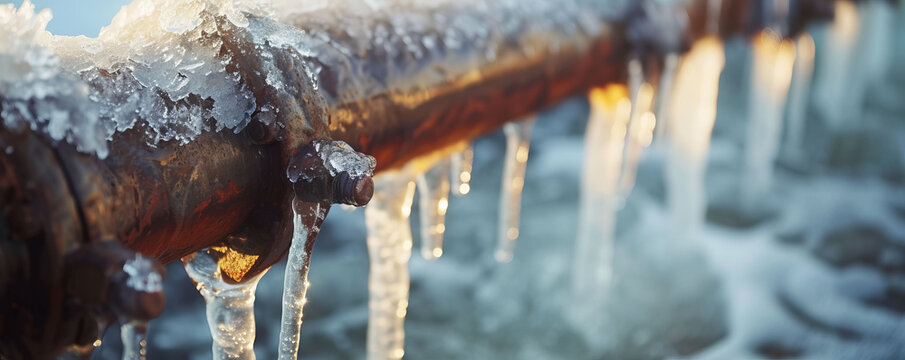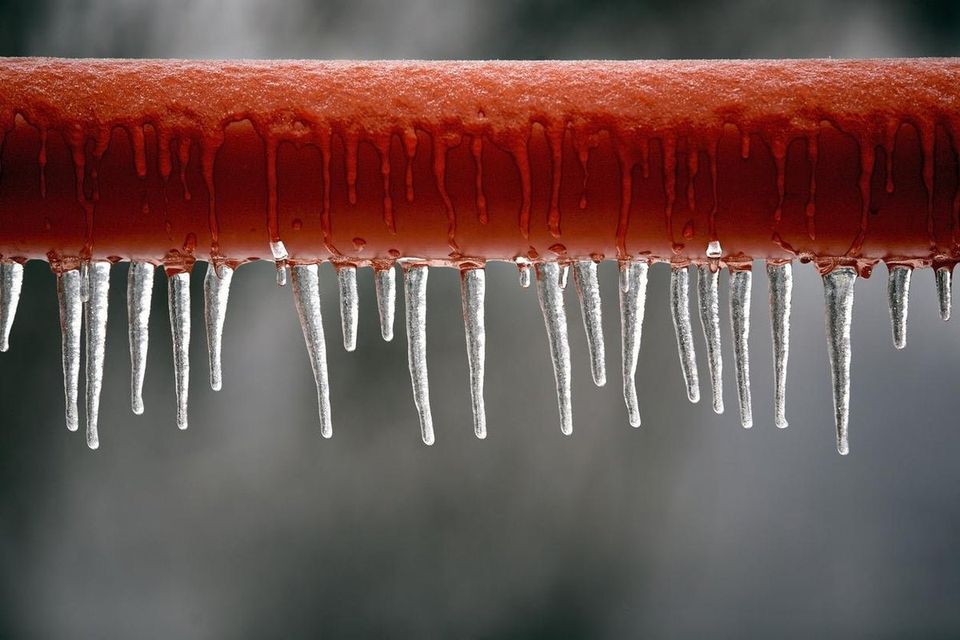Shielding Pipes from Cold Weather Issues: Critical Tips
Shielding Pipes from Cold Weather Issues: Critical Tips
Blog Article
We've come across this great article on How To Avoid Freezing Pipes directly below on the web and figured it made good sense to share it with you here.

Winter can wreak havoc on your pipes, particularly by freezing pipes. Below's how to avoid it from taking place and what to do if it does.
Introduction
As temperatures drop, the danger of icy pipelines increases, potentially causing expensive fixings and water damages. Recognizing how to stop frozen pipelines is important for property owners in chilly environments.
Understanding Frozen Pipes
What triggers pipes to ice up?
Pipes freeze when exposed to temperature levels listed below 32 ° F (0 ° C) for prolonged durations. As water inside the pipelines ices up, it increases, taxing the pipeline wall surfaces and possibly causing them to break.
Risks and problems
Icy pipelines can bring about supply of water disturbances, home damages, and costly repair work. Ruptured pipes can flooding homes and create comprehensive structural damage.
Indicators of Frozen Piping
Identifying icy pipes early can avoid them from bursting.
Exactly how to determine icy pipes
Search for decreased water flow from taps, unusual smells or sounds from pipes, and noticeable frost on revealed pipelines.
Avoidance Tips
Insulating at risk pipes
Wrap pipelines in insulation sleeves or use warmth tape to secure them from freezing temperature levels. Focus on pipelines in unheated or exterior areas of the home.
Home heating methods
Keep interior rooms properly heated up, especially areas with pipes. Open cupboard doors to permit warm air to flow around pipelines under sinks.
Securing Outdoor Plumbing
Garden pipes and exterior faucets
Disconnect and drain garden pipes prior to wintertime. Set up frost-proof faucets or cover outdoor taps with shielded caps.
What to Do If Your Pipes Freeze
Immediate actions to take
If you suspect icy pipelines, maintain faucets open to relieve pressure as the ice melts. Utilize a hairdryer or towels taken in hot water to thaw pipelines gradually.
Long-Term Solutions
Structural adjustments
Think about rerouting pipelines far from exterior walls or unheated areas. Add additional insulation to attics, cellars, and crawl spaces.
Updating insulation
Invest in premium insulation for pipelines, attic rooms, and wall surfaces. Correct insulation helps maintain consistent temperatures and decreases the danger of frozen pipelines.
Verdict
Protecting against frozen pipelines needs proactive actions and quick reactions. By comprehending the causes, indicators, and preventive measures, house owners can safeguard their pipes during cold weather.
Helpful Tips to Prevent Frozen Pipes this Winter
UNDERSTANDING THE BASICS: WHY PIPES FREEZE AND WHY IT’S A PROBLEM
Water freezing inside pipes is common during the winter months, but understanding why pipes freeze, and the potential problems it can cause is crucial in preventing such incidents. This section will delve into the basics of why pipes freeze and the associated problems that may arise.
THE SCIENCE BEHIND FROZEN PIPES
When water reaches freezing temperatures, it undergoes a physical transformation and solidifies into ice. This expansion of water as it freezes is the primary reason pipes can burst. As the water inside the pipe freezes, it expands, creating immense pressure on the walls. If the pressure becomes too great, the pipe can crack or rupture, leading to leaks and water damage.
FACTORS THAT CONTRIBUTE TO PIPE FREEZING
Low Temperatures: Extremely cold weather, especially below freezing, increases the risk of pipes freezing. Uninsulated or Poorly Insulated Pipes: Pipes located in unheated areas, such as basements, crawl spaces, or attics, are more prone to freezing. Insufficient insulation or lack of insulation altogether exacerbates the problem. Exterior Wall Exposure: Pipes running along exterior walls are susceptible to freezing as they encounter colder temperatures outside. Lack of Heating or Temperature Regulation: Inadequate heating or inconsistent temperature control in your home can contribute to frozen pipes. PROBLEMS CAUSED BY FROZEN PIPES
- Pipe Bursting: As mentioned earlier, the expansion of water as it freezes can cause pipes to burst, resulting in significant water damage.
- Water Damage: When pipes burst, it can lead to flooding and water damage to your property, including walls, ceilings, flooring, and personal belongings.
- Structural Damage: Prolonged exposure to water from burst pipes can compromise the structural integrity of your home, leading to costly repairs.
- Mold and Mildew Growth: Excess moisture from water damage can create a favorable environment for mold and mildew growth, posing health risks to occupants.
- Disrupted Water Supply: Frozen pipes can also result in a complete or partial loss of water supply until the issue is resolved.
WHY CERTAIN PIPES ARE MORE PRONE TO FREEZING
- Location: Pipes located in unheated or poorly insulated areas, such as basements, crawl spaces, attics, or exterior walls, are at higher risk of freezing.
- Exterior Pipes: Outdoor pipes, such as those used for irrigation or exposed plumbing, are particularly vulnerable to freezing as they are directly exposed to the elements.
- Supply Lines: Pipes that carry water from the main water supply into your home, including the main water line, are critical to protect as freezing in these lines can affect your entire plumbing system.
- Underground Pipes: Pipes buried underground, such as those connected to sprinkler systems or outdoor faucets, can be susceptible to freezing if not properly insulated.
https://busybusy.com/blog/helpful-tips-to-prevent-frozen-pipes-this-winter/

Do you enjoy more info about Prevent Frozen Pipes ? Place feedback down the page. We will be pleased to find out your feelings about this piece. In hopes to see you back again before long. If you please take a moment to promote this blog if you appreciated it. We cherish reading our article about Preventing and dealing with frozen pipes.
Click Here Report this page